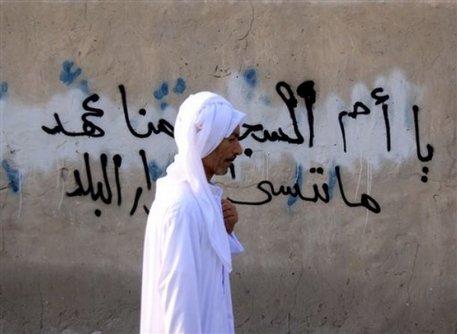
Linkage - the idea that there is a direct correlation between the Mideast peace process and the successful isolation of the Islamic Republic - has been the source of much debate in recent months in pundit and policy making circles, especially as Iran has eclipsed Israel's other security concerns in the Middle East.
Arab sheikdoms and autocrats, or so the argument goes, would naturally fall in line behind any U.S.-Israeli security regime in the region, as most of these actors - once pressed on the matter behind closed doors - would readily list Iran as their top regional concern, much as the Israelis already do. There's plenty of reason to believe that such a model for isolating Iran might emerge, evidenced more recently by the goody bags of weapons systems being doled out throughout the region.
But one of the pitfalls in creating such a regional dynamic, whereby the United States essentially guarantees the security and stability of the surrounding autocrats and monarchs, is what we're witnessing this week in Bahrain and Kuwait. When America's top diplomat calls Iran an emerging Junta, and the West repeatedly calls Tehran a regional threat, it gives the region's other not-democracies - you know, the friendly ones - carte blanche to suppress and discriminate against their Shia minorities and, in the case of Bahrain, majorities.
This certainly isn't breaking news, and Iran is by no means innocent of fanning the flames of sectarian division; and Secretary Clinton is, by the way, probably correct in her assessment of the Iranian leadership. But I question whether or not pandering to what are very old ethnic and religious differences is the best way to foster a 'cold' containment in the Middle East, or if it will only backfire and solidify Iran's place as champion of the global anti-American.
(AP Photo)











